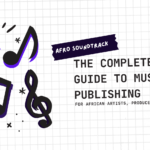Some of the biggest hits out of Nigeria didn’t happen in isolation. They happened through collaboration, shared effort and vision by all parties involved.
A songwriter pens the perfect hook, a producer lays down a killer beat, and a vocalist brings it all to life. The energy is right, the music is magic, and then the song blows.
But as the streams rise and the money starts coming in, another conversation becomes necessary:
Who owns what?
In Nigeria’s fast-growing music industry, where there’s still limited conversation around creative ownership and music business literacy, many artists still overlook the importance of drawing up a split sheet.
It may be less exciting than recording a new track, but it’s very necessary to prevent future disputes, and ensure every contributor gets the credit and compensation they deserve.
This guide will walk you through exactly how Split Sheet works, why it matters, and how to use it to secure your music, your relationships, and your earnings.
What Is a Split Sheet?
A split sheet is a simple but essential document that lists everyone who contributed to a song and clearly outlines how the ownership of that song is divided.
In plain terms, it is a written agreement that specifies who owns what percentage of the song’s copyright.
In most recorded songs, there are two main copyrights to be aware of:
- Musical Composition: This includes the lyrics with melody, rhythm and harmony.
- Sound Recording: This is the final recorded version of the song.
Split sheets specifically deal with the musical composition, which is especially important for songwriters, composers, lyricists, and sometimes producers who contribute to the creative structure of the song.
The split sheet spells out who did what and how much of the song each contributor owns.
It ensures that when Music Publishing royalties come in from streaming, licensing, or performance rights everyone knows exactly what share they are entitled to.
Think of it as a recipe card for your track. It keeps things fair and transparent, especially when success comes knocking.
Why Split Sheets Matter
The Bible offers two striking perspectives on money. It warns that the love of money is the root of all evil, yet also says that money answers all things. That same tension is all too familiar in many Nigerian music collaborations.
The same music that brings people together can just as quickly tear collaborators apart when money enters the picture and the terms are unclear.
Royalties are money. And if you don’t define who owns what from the start, vague or unwritten agreements can turn promising collaborations into long-running disputes.
That’s why split sheets matter. They protect your rights, preserve your relationships, and ensure that everyone gets their fair share before the money rolls in.
When Credits Are Missing: Two Cases That Show Why Split Sheets Matter
(i) Black Face vs 2Baba (The African Queen Dispute)
Let’s take it back to 2004. Blackface, a founding member of the group Plantashun Boiz, claimed he co-wrote the timeless hit “African Queen” with 2Baba (formerly known as 2Face). But when the song became a global sensation, Blackface said he was neither credited nor paid royalties.
Music executive Kenny Ogungbe later confirmed that while Blackface released a version of the song first, the official copyright registration under BMI listed only 2Baba as the songwriter. Blackface’s name was left out entirely.
2Baba acknowledged that it was a collaboration, but also stated that he wrote most of the song and believed Blackface would eventually come around.
Blackface, however, has continued to insist that there was a 50-50 split agreement in place that was never honoured.
The fallout led to years of public back-and-forth, interviews, legal threats, and personal tension. All of which might have been avoided with a clear, signed split sheet.
(ii) Zucca & LoMastro vs. Tyla (The ‘Water’ Dispute)
Fast forward to 2025. South African pop star Tyla, known for her Grammy-winning hit “Water”, is now facing a lawsuit.
Two producers, Olmo Zucca and Jackson LoMastro, allege that they contributed to the song during a March 2023 studio session in Los Angeles.
According to them, a recording session took place March 8–9, 2023 in Los Angeles, with four producers present: Olmo Zucca, Jackson LoMastro, Rayan “Rayo” Goufar, and Sammy “SoSo” Awuku.
Zucca and LoMastro claim they contributed core musical elements that were used in the final master. These files were then transferred to Awuku’s computer.
Despite contributing as full producers, they were not treated as such in legal terms.
They claim they were promised standard top-line producer shares around 12.5 percent each but were only given 10 percent combined.
Before the song’s official release on July 28, 2023, a document titled “Tyla – Water Split Sheet Agreement” was signed on or about July 5, 2023 by producers David Zucca, Brandon LoMastro, and Rayan “Rayo” Goufar.
The Split Sheet Agreement provided that “the copyright in the Composition shall be secured and held in the name of the following writers and publishers with writing/production credits, songwriter and publishing income from the Composition being listed and divided as set forth below.”
However, the document was not signed by anyone other than Zucca, LoMastro, and Goufar. It was also undated, and expressly addressed only “writing/production credits, songwriter and publishing income.
The lawsuit, filed in California, names Tyla, her producer Sammy Soso (Samuel Awuku), and Sony Music Entertainment, the owner of Tyla’s label Epic Records.
Zucca and LoMastro are seeking rightful credits and full royalty shares.
In this case, having a split sheet was not enough. The lack of clarity and completeness within the agreement opened the door to legal challenges, a lesson in how vague or incomplete paperwork can lead to costly disputes.
Now imagine the stress, legal fees, and lost trust all because proper paperwork wasn’t done upfront.
The lesson? Oral agreements, no matter how well-intentioned, rarely hold up when the money starts flowing.
In both the African Queen and Water disputes, the absence of clear, written terms created space for misunderstanding, resentment, and costly legal action.
Verbal promises are not enough. The studio might feel like a safe creative space, but once your song enters the world and climbs the charts, business must follow art.
Always draft and sign split sheets before release. Ensure the terms are clear, comprehensive, and each party knows exactly where they stand.
In the fast-paced music industry, creativity is king, but paperwork is queen.
A Split Sheet may seem like a simple form, but it plays a powerful role in protecting the rights of everyone involved in a song’s creation.
What Should Be On a Split Sheet?
1. Song Title
2. Full Names of Contributors and their roles. Clearly state who did what (e.g., lyricist, composer, beatmaker etc)
3. Ownership Percentages and agreed splits
4. Contact Information and Performing Rights Organization (PRO) affiliations, such as MCSN, ASCAP, BMI, or PRS.
5. Publishing Administrator Name and Affiliation
6. Signatures and Date of all parties involved.
How to Split the Shares Fairly
In the world of music, collaborations are often at the heart of hit songs. This raises an important question: how do you fairly divide royalties when multiple creatives contribute to a single track? The answer begins with understanding the legal concept of joint authorship.
Section 5 of the Nigerian Copyright Act 2022 explicitly recognises joint authorship of copyrightable works. Under the Act, individuals who contribute original elements to a work or hold shared interests in a copyright are considered co-owners for purposes of assignment, licensing, and royalty collection (Section 30(5)).
This means that when two or more people collaborate on a project, each contributing an essential part that is recognised under the law as a musical work, whether lyrics, melody, beats or instrumental arrangement, they are legally recognised as joint authors.
Each contributor’s input is considered vital to the final composition, and without a written agreement, the law generally assumes equal ownership of the work.
Traditionally, publishing splits reflect the relative contribution of each creator. In a simple collaboration with one lyricist and one composer (whom we will refer to as producer for the purpose of this article), the industry norm is a 50/50 split: half for the lyricist’s words and half for the producer’s composition. When multiple producers are involved, the composer’s portion is divided among them.
For instance, with two producers known as co-producers and a lyricist, each producer might receive 25 percent, leaving 50 percent for the lyricist.
Additional contributors, such as additional producer or an instrumentalist usually Saxophonist, Guitarist etc who adds a distinctive riff or melody, usually receive between 0 and 10 percent, depending on the significance of their input to the song’s melody or structure. These percentages reflect creative influence and contribution to the core composition.
It is also crucial to understand that music income is split into two main streams: publishing income and master recording income.
Publishing income comes from the use of the composition itself, including the lyrics and melody. This includes royalties from offline performances and digital performance income collected by Music Publishers, Administrators and Self Published writers from PROS in Nigeria, mechanical royalties from streams, downloads and post audio visual reproduction including music, and synchronization licenses for TV, films, or advertisements.
Publishing splits are determined either through a written split sheet or, in absence of that, equally among contributors under Nigerian copyright law.
Master recording income, on the other hand, derives from the actual recorded performance. This includes streaming revenue, digital sales, physical copies, and master sync licenses.
Under Section 2(1)(e) of the Copyright Act 2022, sound recordings are recognized as copyrightable works. Section 28(1) provides that, except as otherwise agreed, copyright initially vests in the author, and Section 108 defines the author of a sound recording as the person by whom the arrangements for the recording were undertaken, typically the label or, for independent releases, the artist.
This legal structure explains why the recording artist or label typically controls 100 percent of the master income.
However, producers often negotiate producer points, usually between 2 and 10 percent for an artist affiliated with a label and up to 25% on an indie Artist song, as a royalty for their role in shaping the sound of the recording.
In addition, mixing and mastering engineers may also receive a small share, often around 1 percent, depending on the calibre of the engineer and the significance of their contribution to the final sound.
For example, if a track generates ₦1,000,000 in streaming revenue and the distributor charges a 20 percent commission (₦200,000), the artist receives a net income of ₦800,000. A producer with 5 percent points would then earn ₦40,000 from this net amount.
In some independent or collaborative settings, producers may negotiate higher points if their contribution significantly defines the track’s sound.
This two-tiered approach ensures fairness. Publishing splits reward creative authorship, while master points recognize technical and artistic contributions to the recording itself.
The key takeaway for Nigerian artists is to document all agreements upfront, ideally with a clear, signed split sheet. Doing so protects all contributors, avoids misunderstandings, and guarantees accurate royalty distribution, keeping creative partnerships professional and conflict-free.
When Should You Sign a Split Sheet?
The best time to sign a split sheet is immediately after the songwriting session.
Waiting until a track gains traction or commercial success can open the door to disputes, overlooked contributions, or unfairly assigned credits.
By making it a routine part of your studio workflow, just like saving your beats or backing up your sessions, you protect everyone’s interests while the creative energy is still fresh and the details are clear.
Common Mistakes to Avoid
(i) “We’ll figure it out later” mindset: Postponing conversations about ownership may seem harmless during the excitement of creating, but it can lead to major disputes down the line. Always clarify splits as early as possible.
(ii) Using stage names instead of legal names: Legal names are required for enforceable agreements and royalty collection. Using only a stage name may complicate copyright claims or cause payment issues.
(iii) Not accounting for all contributors, even Hook composers or solo instrumentalists like saxophonist, lead guitarist etc.
(iv) Forgetting to add PRO details: Performing Rights Organizations (like MCSN, ASCAP, BMI, or PRS) use this data to track and distribute royalties. Missing or incorrect details could mean missed earnings.
(v) Forgetting to add Publishing Administrator details: The publishing administrator is responsible for managing the collection, reporting, and distribution of royalties on behalf of the songwriters and composers.
Leaving this section blank or providing incomplete information can result in delayed payments, missed opportunities, or misallocation of royalties. Including accurate publishing administrator details ensures that all income from performances, mechanicals, and sync licenses is properly tracked and paid.
For Nigerian artists, this includes your local administrator like Afro Soundtrack, or any global administrator affiliated with PROs like ASCAP, BMI, or PRS.
Proper documentation here ensures seamless royalty flow and protects the rights of every contributor.
(vi) Assuming “friendship” means ownership won’t be an issue: Verbal agreements and friendships are not enough. A written split sheet protects your creative work and helps maintain relationships by removing ambiguity.
Protect Your Afrobeat Collab: Download Your Free Split Sheet from Afro Soundtrack
Your song might be the next big hit and ensuring everyone’s share is secured now helps avoid future problems before they ever arise.
A split sheet achieves just that. It shows you mean business, not just vibes.
It only takes a few minutes to fill one out, but it can save you years of misunderstandings, unpaid royalties, or broken friendships.
Without a split sheet, even the tightest creative partnerships can hit a sour note. But by documenting who did what, how much they own, and how royalties will be split, you lay the foundation for a fair, professional, and drama-free collaboration.
That’s why at Afro Soundtrack, we’ve made it easy for artists, producers, and composers to get started.
Our free downloadable split sheets are tailored specifically for Afrobeat and African music collaborations.
And we don’t stop at paperwork. Afro Soundtrack is your one stop partner for growing your income as a creator.
We manage publishing royalties, distribute your work to music libraries and streaming platforms, and help secure sync placements in films, ads, games, and trailers.
So if you’re ready to level up, start with the basics: download your free split sheet today and let Afro Soundtrack support your journey toward professional growth, creative freedom, and sustainable income.
FAQs About Split Sheets
1. Can I draft my own split sheet without a lawyer?
Yes! While legal input can provide extra protection, many musicians successfully use downloadable templates or even WhatsApp/email confirmations to formalize splits. We’ve prepared one tailored for Nigerian artists and producers. Download it Here.
2. Is it too late to do a split sheet if the song is already out?
It’s never too late, but you’ll need all contributors to agree retroactively. In cases of disagreement, having legal support can help formalize the split and avoid future disputes.
3. Do publishing royalties apply to producers?
Yes! Producers who help create the music, not just the finished beat, should always be included on a split sheet because publishing royalties apply to them. This ensures their contributions are recognized and fairly compensated.
Any producer who works on the melody, chords, or arrangement is considered a co-writer and owns a share of the publishing.
Even when a producer only makes the beat, it usually contains original elements like melodies, chord progressions, or drum patterns. These elements qualify as songwriting under copyright law, meaning the producer is entitled to a portion of the royalties.
4. Can split sheets cover minor contributors like instrumentalists or hook writers?
Yes. Anyone who adds original, copyrightable elements like a guitarist’s riff, a saxophone hook, or a co-producer’s melody tweak should be accounted for. Even small contributions can entitle them to a percentage of publishing royalties, typically between 0–10%, depending on their creative impact.
The Copyright Act 2022, in Section 2(1)(a), includes musical works among works eligible for copyright. It further stipulates in Section 2(2) that such works must be original and fixed in a tangible form, meaning these contributions qualify once recorded and should be reflected in split sheets.
5. What if I forget to include Publishing Administrator details?
Including Publishing Administrator information ensures proper registration with PROs and accurate royalty collection. Omitting these details could result in delayed payments or misallocated royalties.
6. Can split sheets be used for international collaborations?
Yes! When working with artists, producers, or labels outside Nigeria, split sheets clarify each contributor’s share. This makes it easier to register with global PROs like ASCAP, BMI, or PRS and ensures royalties are collected correctly across borders.


